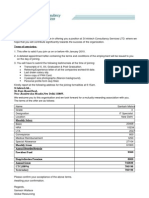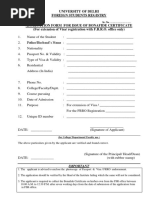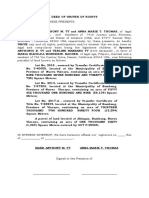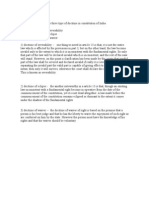0 ratings0% found this document useful (0 votes)
12 viewsEmergency Provisions: Presented by Santhosh Rao Menneni
Emergency Provisions: Presented by Santhosh Rao Menneni
Uploaded by
23211e0011Copyright:
© All Rights Reserved
Available Formats
Download as PDF, TXT or read online from Scribd
Emergency Provisions: Presented by Santhosh Rao Menneni
Emergency Provisions: Presented by Santhosh Rao Menneni
Uploaded by
23211e00110 ratings0% found this document useful (0 votes)
12 views23 pagesOriginal Title
5_6147739208795555337
Copyright
© © All Rights Reserved
Available Formats
PDF, TXT or read online from Scribd
Share this document
Did you find this document useful?
Is this content inappropriate?
Copyright:
© All Rights Reserved
Available Formats
Download as PDF, TXT or read online from Scribd
Download as pdf or txt
0 ratings0% found this document useful (0 votes)
12 views23 pagesEmergency Provisions: Presented by Santhosh Rao Menneni
Emergency Provisions: Presented by Santhosh Rao Menneni
Uploaded by
23211e0011Copyright:
© All Rights Reserved
Available Formats
Download as PDF, TXT or read online from Scribd
Download as pdf or txt
You are on page 1of 23
Emergency provisions
Presented by Santhosh Rao
Menneni
• Part XVIII: Articles 352 to 360.
• It converts the federal structure into a unitary one without
a formal amendment of the Constitution.
• The Constitution stipulates three types of emergencies:
• 1. ‘National Emergency’ (Art 352)
• 2. ‘President’s Rule’ (Art 356)
• 3. Financial Emergency (Art 360)
NATIONAL EMERGENCY
• National emergency can be declared on the basis of war,
external aggression or armed rebellion.
• Note: The Constitution employs the expression
‘proclamation of emergency’ to denote an emergency of
this type.
• External Emergency
• Internal Emergency
• Note: This term ‘armed rebellion’ is inserted from the
44th amendment. Before this term it was known as
internal disturbance.
Emergency and Judicial review
• The 38th Amendment Act of 1975: Judicial review.
• 44th Amendment Act of 1978.
• In Minerva Mills case (1980)
• Parliamentary approval and duration
• Continuation of emrgency: Special majority
• Revocation of proclamation
Effects of national emergency
• 1. Effects on the centre-state relations
• 2. Effect on the life of the Lok Sabha and State Assembly
• 3. Effect on fundamental rights
Effect on fundamental rights
• 1. Suspension of Fundamental rights under Article
19: 358
• 2. Suspension of other Fundamental Rights: Art 359
Emergency instances:
Type of emergency Reason Duration
1. National Emergency Chinese aggression October 1962-January 1968
2. National Emergency Pakistan war December 1971 - March 1977
3. National Emergency Internal disturbance June 1975 - March 1977
President’s Rule
• Article 356 is popularly known as the imposition of ‘President’s
Rule’ in a state.
• Article 355
• Grounds of imposition
– 356
– 365
• Parliamentary approval and duration
44th CAA 1978 in relation to President’s rule:
• 1. The 44th Amendment Act of 1978 introduced a new
provision to put restraint on the power of Parliament to
extend a proclamation of President’s Rule beyond one
year.
• 2. Thus, it provided that, beyond one year, the President’s
Rule can be extended by six months at a time only when
the following two conditions are fulfilled:
• 1. A proclamation of National Emergency should be in
operation in the whole of India, or in the whole or any part
of the state; and
• 2. The Election Commission must certify that the general
elections to the legislative assembly of the concerned
state cannot be held on account of difficulties.
• Note: A proclamation of President’s Rule may be revoked
by the President at any time by a subsequent
proclamation. Such a proclamation does not require the
parliamentary approval.
Consequences of the President’s rule
• The President acquires the following extraordinary powers
when the President’s rule is imposed in a state:
• 1. He can take up the functions of the state government
and powers vested in the governor or any other executive
authority in the state.
• 2. He can declare that the powers of the state legislature
are to be exercised by the parliament.
Scope of judicial review
• The 38th Amendment act of 1975 made the satisfaction
of the President in invoking Article 356 final and
conclusive which would not be challenged in any court
on any ground.
• But, this provision was subsequently deleted by the 44th
Amendment Act of 1978 implying that the satisfaction of
the President is not beyond judicial review.
National Emergency (Article 352) President’s Rule (Article 356)
1. War, external aggression or armed 1. Government of a state cannot be
rebellion. carried on in accordance with the
provisions of
the Constitution
2. The state executive and legislature 2. The executive and
continue to function legislative powers of the state are
assumed by the Centre.
3. The Parliament can make laws on 3. Under this, the Parliament can
the subjects enumerated in the State delegate
List only by itself, that is, it cannot the power to make laws for the state to
delegate the same to any other body or the
authority. President or to any other authority
specified by him
4. It can be continued indefinitely 4. There is a maximum period
with the approval of Parliament prescribed
for every six months. for its operation, that is, three years.
National Emergency (Article 352) President’s Rule (Article 356)
5. The relationship of the Centre with all 5. The relationship of only the
the states undergoes a modification. state under emergency with the Centre
undergoes a modification.
6. Must be passed by a special 6. Can be passed only by a
majority. simple majority.
7. It affects fundamental rights 7. It has no effect on Fundamental
of the citizens. Rights
of the citizens
8. Lok Sabha can pass a 8. There is no such provision. It can be
resolution for its revocation revoked by the President only on his
own.
Financial Emergency
• Grounds of declaration: Article 360 empowers the
president to proclaim a Financial Emergency if he is
satisfied that a situation has arisen due to which the
financial stability or credit of India or any part of its
territory is threatened.
• Parliamentary approval and duration: A proclamation
declaring financial emergency must be approved by both
the Houses of Parliament within two months from the
date of its issue.
• However, if the proclamation of Financial Emergency is issued
at a time when the Lok Sabha has been dissolved or the
dissolution of the Lok Sabha takes place during the period of
two months without approving the proclamation, then the
proclamation survives until 30 days from the first sitting of the
Lok Sabha after its reconstitution, provided the Rajya Sabha
has in the meantime approved it.
• Once approved by both the houses of Parliament, the
Financial Emergency continues indefinitely till it is revoked.
Effects of Financial Emergency
• 1. Extension of the executive authority of the Union over
the financial matters of the States.
• 2. Reduction of salaries and allowances of all or any
class of persons serving in the State.
• 3. Reservation of all money bills or other financial bills for
the consideration of the President after they are passed
by the legislature of the State.
• 4. Direction from the President for the reduction of
salaries and allowances of all or any class of persons
serving the Union; and the judges of the Supreme Court
and the High Courts.
Criticism of the Emergency Provision
• 1. The federal character of the constitution will be destroyed
and the union will become all-powerful
• 2. The powers of the State- both the Union and the Units- will
entirely be concentrated in the hands of the union executive.
• 3. The president will become a dictator
• 4. The financial autonomy of the state will be nullified
• 5. Fundamental rights will become meaningless and, as a
result, the democratic foundation of the constitution will be
destroyed.’
You might also like
- PNC Aa Fo 51 Academic Credentials Authorization Form 20230322135515Document1 pagePNC Aa Fo 51 Academic Credentials Authorization Form 20230322135515gb270No ratings yet
- EMERGENCY ProvisionsDocument32 pagesEMERGENCY Provisions6 4 8 3 7 JAYAASRI K100% (1)
- Emergency ProvisionsDocument16 pagesEmergency ProvisionsARISTOTLE OOPS Emp. no:1No ratings yet
- Emergency-Iske Alawa Koi PDF Ni MilegiDocument18 pagesEmergency-Iske Alawa Koi PDF Ni MilegiektaNo ratings yet
- Emergency in IndiaDocument30 pagesEmergency in IndiaRiya Singh100% (1)
- Emergency Provisions: by Bhargav ChakrabortyDocument37 pagesEmergency Provisions: by Bhargav ChakrabortyTirtharaj SenNo ratings yet
- Study NotesDocument4 pagesStudy NotesananduictNo ratings yet
- Emergency Provisions in Indian Constitution1Document6 pagesEmergency Provisions in Indian Constitution1DNo ratings yet
- POLITY Revision Part 3Document47 pagesPOLITY Revision Part 3Karan Roll.822No ratings yet
- Upsc Emergency Provisions of Indian Constitution Pdfs Template F80ce679Document5 pagesUpsc Emergency Provisions of Indian Constitution Pdfs Template F80ce679rajhp54321No ratings yet
- M.A Pub Admn - II Sem 204 Emergency ProvisionDocument6 pagesM.A Pub Admn - II Sem 204 Emergency ProvisionRaju KumarNo ratings yet
- CSE ECE EIE IT Second Internal May 2023 Important QuestionsDocument8 pagesCSE ECE EIE IT Second Internal May 2023 Important QuestionsBus teiveNo ratings yet
- EMERGENCY-PROVISIONS_1682066433Document14 pagesEMERGENCY-PROVISIONS_168206643344 Varsha KaushikNo ratings yet
- Emergency Provisions Union Territories 54Document11 pagesEmergency Provisions Union Territories 54Arun GurjarNo ratings yet
- National EmergencyDocument4 pagesNational EmergencyRahul JaiswarNo ratings yet
- Emergency Provisions in Indian ConstitutionDocument6 pagesEmergency Provisions in Indian ConstitutiondeepaksinghalNo ratings yet
- Polity - Emergency Provisions - English - 1604945962Document7 pagesPolity - Emergency Provisions - English - 1604945962Anuj Singh GautamNo ratings yet
- Emergency ProvisionsDocument18 pagesEmergency ProvisionsprakashpacetNo ratings yet
- Emergency: Effects of National EmergencyDocument3 pagesEmergency: Effects of National EmergencySachinSharmaNo ratings yet
- Document (80)Document9 pagesDocument (80)amankumar994467No ratings yet
- Emergency Provisions: By-Ravi Ranjan Student, New Law College, Pune Bharati Vidyapeeth Deemed UniversityDocument13 pagesEmergency Provisions: By-Ravi Ranjan Student, New Law College, Pune Bharati Vidyapeeth Deemed Universityyash khatriNo ratings yet
- Unit 4Document15 pagesUnit 4shreyas dasNo ratings yet
- Emergency Provisions 29Document9 pagesEmergency Provisions 29ravi kumarNo ratings yet
- AmendmentsDocument7 pagesAmendmentsmr.gourab07No ratings yet
- Unit 4 (A)Document47 pagesUnit 4 (A)jayantballb20No ratings yet
- Unit 4 - Emergency ProvisionsDocument18 pagesUnit 4 - Emergency ProvisionsArunachalam RNo ratings yet
- Brief Overview On Emergency Provisions Under Indian Constitution DR Mohd ImranDocument47 pagesBrief Overview On Emergency Provisions Under Indian Constitution DR Mohd ImranChetanye ManjhuNo ratings yet
- Emergency ProvisionsDocument6 pagesEmergency ProvisionsAyush SinghNo ratings yet
- 5.emergency in India: Explanation of Article 352Document24 pages5.emergency in India: Explanation of Article 352Rohit AhujaNo ratings yet
- Assignment Constitution PDFDocument6 pagesAssignment Constitution PDFPratish ThomasNo ratings yet
- Polity 23 EmergencyDocument34 pagesPolity 23 EmergencyGaurav KumarNo ratings yet
- Module 2Document18 pagesModule 2sandyanaikNo ratings yet
- Xu RZA2 KKlo 0 Qfoa 5 K CD TDocument2 pagesXu RZA2 KKlo 0 Qfoa 5 K CD TAndrewNo ratings yet
- EmergencyDocument12 pagesEmergencyShubham singh kirar100% (1)
- Article 355Document10 pagesArticle 355prachiburman0987No ratings yet
- Constituion NotesDocument77 pagesConstituion NotesSwatiVermaNo ratings yet
- Chapter 4Document6 pagesChapter 4Amrit BirajdarNo ratings yet
- Provisions of declaring Emergency and its impact on Media - CopyDocument7 pagesProvisions of declaring Emergency and its impact on Media - Copycena35544No ratings yet
- Emergency ProvisionsDocument4 pagesEmergency ProvisionstamannaNo ratings yet
- Emergency ProvisionsDocument6 pagesEmergency ProvisionssayaliNo ratings yet
- EMERGENCYDocument10 pagesEMERGENCYAdarsh TripathiNo ratings yet
- Coi Aat2Document10 pagesCoi Aat2Praveen VippadapuNo ratings yet
- EMERGENCYDocument7 pagesEMERGENCYNingaraj KoppurNo ratings yet
- Polity 6 KeyDocument16 pagesPolity 6 KeySai Kumar GITTABOINANo ratings yet
- constitutional law unit-vDocument18 pagesconstitutional law unit-vcrushergaming003No ratings yet
- Emergency ProvisionsDocument9 pagesEmergency Provisionsmakane8855No ratings yet
- 5th Sem ConstitutionDocument52 pages5th Sem ConstitutionAtanu HalderNo ratings yet
- Consti Emergency 2Document96 pagesConsti Emergency 2Tamanna -No ratings yet
- EmergencyDocument50 pagesEmergencyArjun ArjunNo ratings yet
- Const. AmendmentDocument28 pagesConst. AmendmentAbhinandan KumarNo ratings yet
- State Emergency - Article 356Document4 pagesState Emergency - Article 356Lukman KmNo ratings yet
- Emergency ProvisionsDocument5 pagesEmergency Provisionschaudhary.amita16No ratings yet
- Emergency ConstiDocument8 pagesEmergency Constiniyati1171No ratings yet
- Min-1 Emergency ProvisionsDocument7 pagesMin-1 Emergency Provisionswww.saaochubenNo ratings yet
- The Emergency ProvisionsDocument18 pagesThe Emergency ProvisionsShubham SarkarNo ratings yet
- PDF Adm Jabalpur VS Shivkant ShuklaDocument14 pagesPDF Adm Jabalpur VS Shivkant ShuklaSAISHA GHOSALKARNo ratings yet
- Emergency Provisions Under The Indian ConstitutionDocument4 pagesEmergency Provisions Under The Indian ConstitutionShivangi BajpaiNo ratings yet
- Emergency ProvisionsDocument13 pagesEmergency ProvisionsavinashNo ratings yet
- 59th Amendment of Indian ConstitutionDocument9 pages59th Amendment of Indian ConstitutionSatvik DhingraNo ratings yet
- Diplomatic Powers: Presidential PardonDocument7 pagesDiplomatic Powers: Presidential PardonFiffuNo ratings yet
- Anshu Admit CardDocument2 pagesAnshu Admit Cardbss15121993No ratings yet
- Uttara University: Assignment On: Public International Law Part-2Document5 pagesUttara University: Assignment On: Public International Law Part-2Nurul Absar NoorNo ratings yet
- The Law Student Digest - STATUTORY CONSTRUCTION REVIEWER - AGPALODocument11 pagesThe Law Student Digest - STATUTORY CONSTRUCTION REVIEWER - AGPALOJose Cristobal LiwanagNo ratings yet
- Doctrine of Harmonious ConstructionDocument8 pagesDoctrine of Harmonious ConstructionKishan PatelNo ratings yet
- Schengen Tourist Visa Application FormDocument4 pagesSchengen Tourist Visa Application FormTouristVisaBookingsNo ratings yet
- Invitation LetterDocument2 pagesInvitation LetteresNo ratings yet
- Ericson Insurance TPA Pvt. LTDDocument1 pageEricson Insurance TPA Pvt. LTDpramodmuley4No ratings yet
- The Eighteenth AmendmentDocument3 pagesThe Eighteenth AmendmentsabirfurqanNo ratings yet
- Appointment LetterDocument2 pagesAppointment LetterWinnie JaneNo ratings yet
- 9th December 2009. Dear Santosh Kumar Mishra, We Have GreatDocument1 page9th December 2009. Dear Santosh Kumar Mishra, We Have GreatEmanuel StokesNo ratings yet
- Salient Features of USA ConstitutionDocument3 pagesSalient Features of USA ConstitutionTAREQ ABEDIN SIRAJINo ratings yet
- Factories Act 1948 PDFDocument2 pagesFactories Act 1948 PDFAmber100% (1)
- University of Delhi Foreign Students Registry: Sr. No.Document2 pagesUniversity of Delhi Foreign Students Registry: Sr. No.usama afzalNo ratings yet
- Ticket-ID 329584805708: Swiss Half Fare CardDocument1 pageTicket-ID 329584805708: Swiss Half Fare CardhareeshNo ratings yet
- Election Commission of PakistanDocument1 pageElection Commission of PakistanDania ChNo ratings yet
- PanssDocument1 pagePanssnaveenmeeseva786No ratings yet
- Karnataka Stamp (Second) Amendment Act, 2015Document2 pagesKarnataka Stamp (Second) Amendment Act, 2015Kushwanth KumarNo ratings yet
- Deed of Waiver of RightsDocument2 pagesDeed of Waiver of RightsSummerRainNo ratings yet
- Zudio Franchise Registration Form Tata-Trent Limited.Document3 pagesZudio Franchise Registration Form Tata-Trent Limited.ksudhir48114No ratings yet
- CARPER LAD FormNo.70 JDocument1 pageCARPER LAD FormNo.70 JNobyembre Bente UnoNo ratings yet
- Civics Chapter 1 NotesDocument3 pagesCivics Chapter 1 NotesBhavya JangidNo ratings yet
- Thailand Visa Application FormDocument1 pageThailand Visa Application FormSubhashis DasNo ratings yet
- Short Note On DoctrineDocument1 pageShort Note On Doctrineajay saharanNo ratings yet
- Regular Offer Letter - AUM-00013762 - FOLARIN DINA PDFDocument1 pageRegular Offer Letter - AUM-00013762 - FOLARIN DINA PDFfolarindina100% (1)
- District Rural Development & Panchayat Raj Department: Collrdgl@nic - In, CollrdglDocument46 pagesDistrict Rural Development & Panchayat Raj Department: Collrdgl@nic - In, CollrdglSa RNo ratings yet
- Naturalized On or After 1st June 2010Document4 pagesNaturalized On or After 1st June 2010sachijoshi246No ratings yet
- Mongolia Visa TouristDocument2 pagesMongolia Visa TouristKss selvaNo ratings yet
- Convocation 2024 UpdatedDocument3 pagesConvocation 2024 Updatedyashkhimnani7No ratings yet
- Pre-Law ReviewerDocument2 pagesPre-Law ReviewerRhen Dave RafaelNo ratings yet

























































































